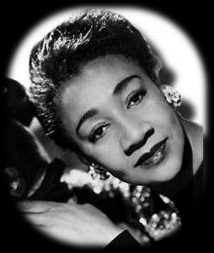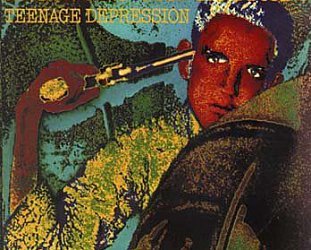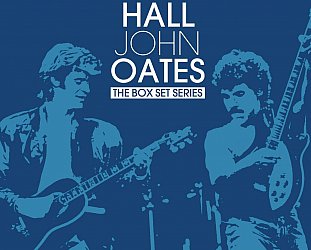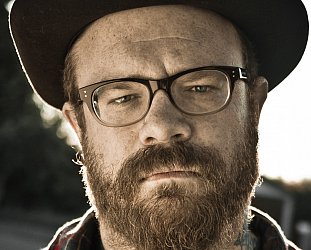Graham Reid | | 1 min read

When Alberta Hunter enjoyed a career revival in the late Seventies -- when she was in her mid 80s -- people who had forgotten her were scrambling to acclaim her saucy and sassy blues, and to look back at where she had come from all those decades previous.
Hunter had been born in 1895 and wrote the classic Downhearted Blues in 1922. Her peers included Bessie Smith who had a hit with Downhearted Blues (Hunter could feel even more downhearted, she'd sold it cheap).
Hunter had run away from home in Memphis at 12 where her mother was a maid in whorehouse and headed to Chicago where she started singing in clubs (she described her singing then as "lousy" later in life) and later moved to New York. She then appeared alongside Paul Robeson in the stage production Show Boat in London. For a decade before the Second World War she performed regularly in Europe and the US.
After the war she retired and went into nursing (using a faked high school diploma and dropping a dozen years from her age) and was quickly forgotten until a brief career revival in the early Sixties before she returned to nursing until she was forced to retire.
She took up singing again and although her remaining career was brief -- she died in '84 aged 89 -- she recorded four albums for Columbia, all of which were widely and favourably reviewed. She appeared at the White House for President Carter, had a full page article in Time in '82 and was performing in Greenwich Village up until a few weeks before her death.
She told Time of her days in Dago Frank's club in Chicago which was a hang-out for prostitutes: "There was a woman there, Tack Annie, who was one of the world's greatest pickpockets. She looked like a horse with a hat on, the ugliest woman I ever saw in my life."
Hunter was largely unaffected by what was going on around her -- she never drank or smoked and saved her money to send back to her mother -- but hooked up to sing with Louis Armstrong, Eubie Blake, Fats Waller, Duke Ellington and King Oliver.
Although she had married early in life and considered women jealous devils, she was also a lesbian but kept that very much to herself in coded quotes: "I got a job, a radio, a television, good health and a bank book," she said in '80. "Just what do I need a man for? You tell me."
Of course she mostly sang blues and what we might call first-generation jazz which addressed relationships between men and women (often sexual) . . . and in this song, an original, she managed to get in matters of sex and race.
Yep, a rare one.
For more oddities, one-offs or songs with an interesting backstory use the RSS feed for daily updates, and check the massive back-catalogue at From the Vaults.





post a comment